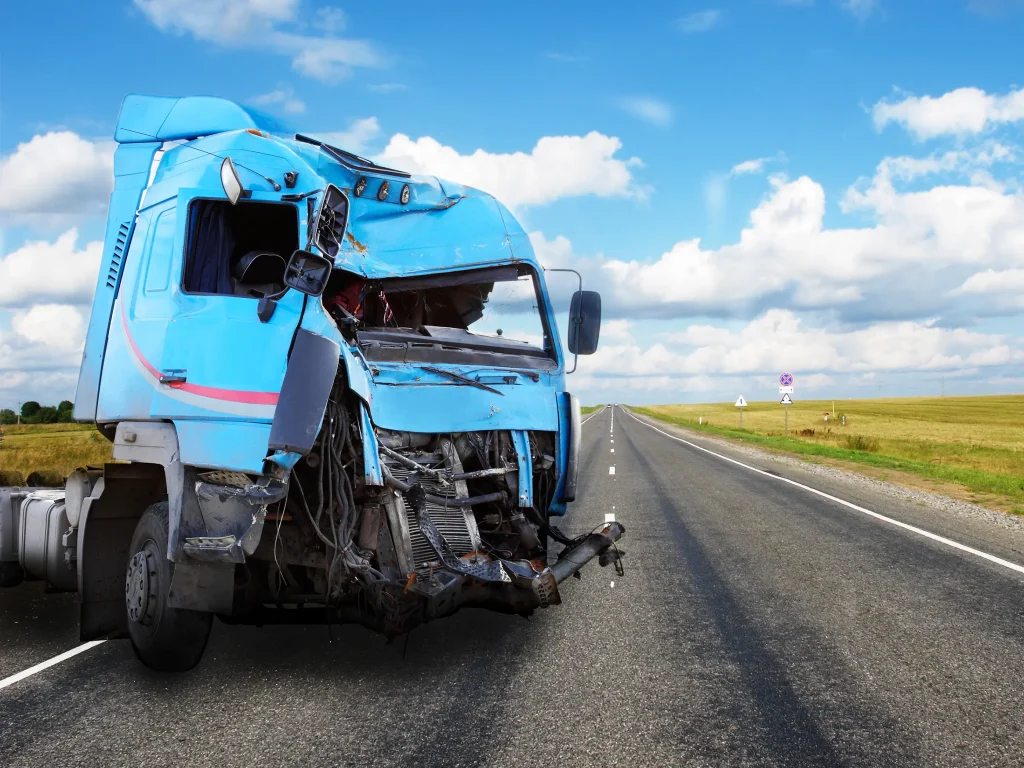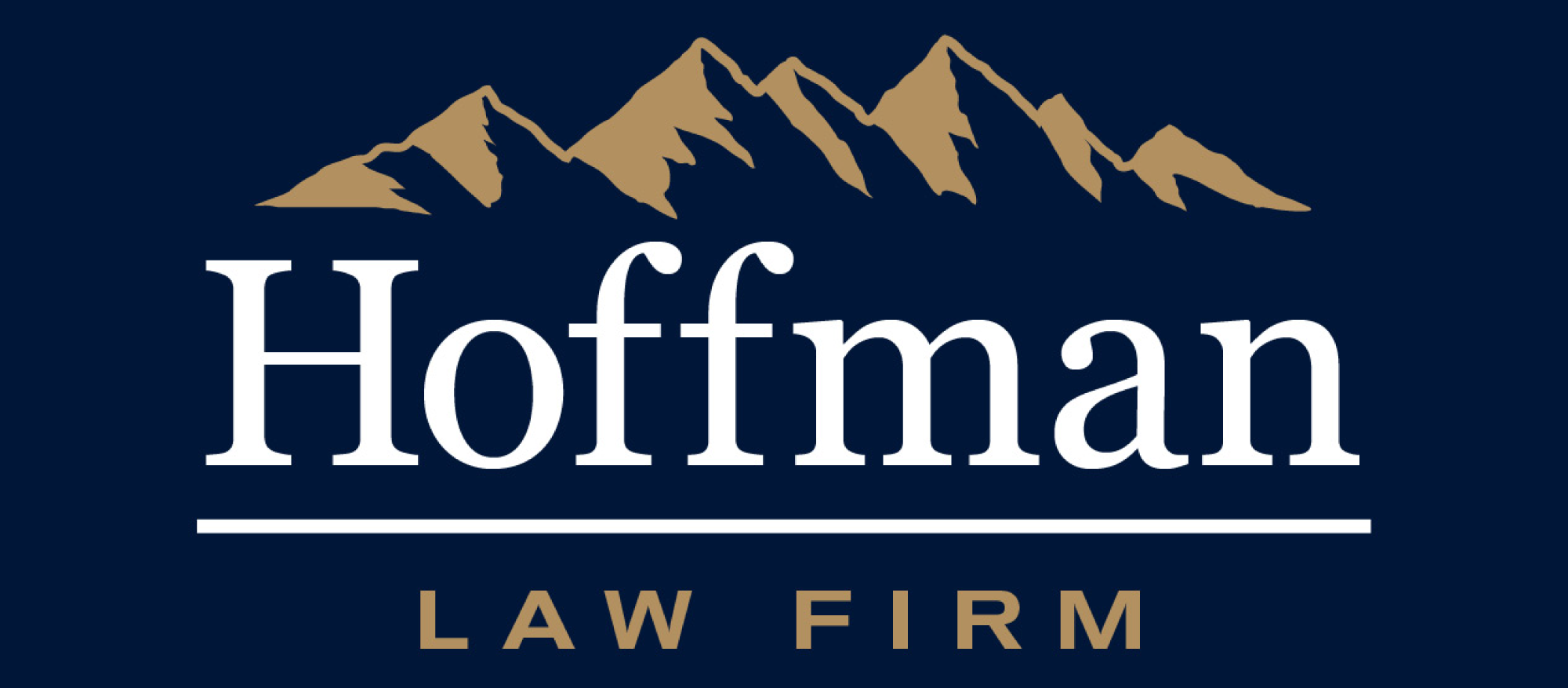When a Giant Collides: A Colorado Law Firm that Handles Semi-Truck Crashes

There’s a fundamental difference between a fender-bender on a suburban street and a collision involving an 80,000-pound semi-truck on I-70. The sheer scale of impact, the complexity of the vehicles involved, and the web of regulations that govern the trucking industry mean that a semi-truck crash is rarely a straightforward personal injury case.
At the Hoffman Law Firm, a dedicated personal injury law firm right here in Fort Collins, Colorado, we’ve honed our expertise in these complex cases. We understand that victims of Colorado semi-truck crashes face unique and often catastrophic challenges. That’s why we don’t just handle these cases; we dive into them.
It’s Not Just a Vehicle; It’s a Commercial Enterprise: Understanding Trucking Regulations
Unlike passenger vehicles, semi-trucks operate under a strict web of federal and state regulations designed to prevent accidents and protect public safety. These rules, primarily enforced by the Federal Motor Carrier Safety Administration (FMCSA), cover everything from driver qualifications and vehicle maintenance to how long a driver can be on the road.
When a semi-truck crash occurs in Colorado, one of the first places our team at Hoffman Law Firm looks for is for potential violations of these regulations. This isn’t a quick scan; it’s a deep dive into:
Hours of Service (HOS) Violations
Truck drivers have strict limits on how many hours they can drive and be on duty. There are daily and weekly limits designed to keep fatigued and tired drivers off the road for their own safety, along with everyone else’s. Fatigued driving is a major cause of serious truck accidents in Colorado. If a driver or company pressured them to exceed these limits, it’s a serious piece of the puzzle.
Electronic Logging Device (ELD) Data
Gone are the days of easily falsified paper logbooks. Most commercial trucks today are required to use Electronic Logging Devices (ELDs) that automatically record driving time, location, engine hours, and other crucial data by syncing with the vehicle’s engine. These digital records are powerful evidence that can reveal if a driver was exceeding driving limits, driving erratically, or taking improper breaks.
Maintenance and Inspection Records
Trucking companies are legally obligated to maintain their vehicles to rigorous safety standards. This includes regular inspections, timely repairs, and proper loading. A poorly maintained truck that has faulty brakes, worn tires, or unsecured cargo can easily lead to a catastrophic accident. We review maintenance logs and inspection reports to uncover any negligence.
Driver Qualifications and Training
Was the driver properly licensed? Did they have the necessary endorsements for the type of cargo they were carrying? Were they adequately trained for adverse weather conditions or mountainous terrain common in Colorado? Sometimes, negligence lies in the hiring and training practices of the trucking company itself.
Drug and Alcohol Testing
Commercial drivers are subject to strict drug and alcohol testing regulations. We investigate whether these protocols were followed and if any substance impairment contributed to the crash.
Understanding these regulations isn’t just about knowing the rules; it’s about knowing how to find the evidence that proves they were broken, which is often crucial for establishing liability in a Colorado semi-truck crash.
Learn more about what evidence is used when determining liability in a semi-truck accidents
Beyond the Scene: The Power of the Electronic Control Module (ECM)
You might have heard of an airplane’s “black box.” Well, semi-trucks have their own version: the Electronic Control Module (ECM). This isn’t just an engine computer; it’s a sophisticated data recorder, often referred to as the truck’s “brain.”
When we investigate a Colorado truck accident, securing and analyzing the ECM data is often one of our very first and most critical steps. These “black boxes” record a treasure trove of information about the truck’s operation in the moments leading up to and during a crash, including:
- Speed: Precise speed readings, showing if the truck was exceeding the speed limit or driving too fast for conditions.
- Braking Activity: When and how hard the brakes were applied, which can indicate if the driver attempted to avoid the collision or if there were brake system failures.
- Engine RPM and Throttle Position: Information about engine performance and how much power was being demanded.
- Gear Selection: What gear the truck was in, which can be relevant in mountainous areas or during braking.
- Cruise Control Usage: Whether cruise control was active and at what speed.
- Diagnostic Trouble Codes: Alerts indicating mechanical issues or system malfunctions.
The data from an ECM provides an objective account of the truck’s behavior. This can be invaluable in reconstructing the accident, verifying or refuting driver testimony, and identifying potential negligence. Our team works with qualified accident reconstruction experts who have the specialized tools and expertise to download and interpret this complex data, ensuring this vital evidence isn’t lost or overlooked. We often send a “spoliation letter” immediately after an accident to the trucking company, putting them on notice that they must preserve all evidence, including the ECM data, or face severe penalties.
Unraveling the Web of Liability: It’s Rarely Just the Driver
In a typical car accident, liability usually falls on one or both drivers. With a semi-truck crash, the picture is almost always more complex. Because a commercial truck is part of a larger business operation, multiple parties can potentially share responsibility for the accident, such as:
- The Truck Driver: Of course, driver negligence (e.g., distracted driving, speeding, fatigue, impaired driving) is often a direct cause.
- The Trucking Company: The company that owns or leases the truck and employs the driver can be held liable for:
- Negligent hiring practices (e.g., hiring unqualified drivers).
- Negligent supervision or training.
- Pressuring drivers to violate HOS regulations.
- Failing to maintain their fleet properly.
- Negligent dispatching (e.g., sending a driver on a route they’re not equipped for).
- The Truck Owner: If the truck is owned by a separate entity from the trucking company, they might also share liability for maintenance or safety issues.
- The Cargo Loader: If the cargo was improperly loaded or secured, leading to a shift in weight and a loss of control, the company responsible for loading could be liable.
- The Truck Manufacturer or Parts Manufacturer: If a defect in the truck itself, or one of its components (like brakes or tires), contributed to the crash, the manufacturer could be held responsible through a product liability claim.
- Third-Party Maintenance Providers: If the trucking company contracted out maintenance, and that maintenance was faulty, the third-party provider could be liable.
Navigating these multiple layers of liability requires an understanding of trucking laws, corporate structures, and insurance policies. Our attorneys at Hoffman Law Firm are skilled at identifying all potentially liable parties and pursuing compensation from every available source. This comprehensive approach is essential for ensuring our clients receive the full justice they deserve after a life-altering Colorado truck accident.
Your Advocates After a Semi-Truck Crash
A collision with a semi-truck isn’t just another accident; it’s an event that can change lives forever. The injuries are often severe, ranging from traumatic brain injuries and spinal cord damage to multiple fractures and even wrongful death. The emotional and financial toll can be immense.
At the Hoffman Law Firm, we believe that victims of semi-truck crashes deserve legal representation that matches the complexity and gravity of their situation. If you or a loved one has been involved in a devastating Colorado truck accident, you need more than just a lawyer; you need a dedicated advocate with a proven track record in these highly specialized cases.
Don’t face powerful trucking companies and their aggressive insurance carriers alone. Contact the Hoffman Law Firm today in Fort Collins for a free, no-obligation consultation. Let us put our specialized knowledge and dedication to work for you, fighting for the compensation and justice you deserve.
